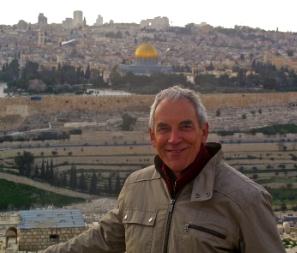A local gay minister is in the running for the top spot of the United Church of Canada.
Reverend Gary Paterson, of St Andrew’s-Wesley United Church in downtown Vancouver, is one of 15 nominees from across Canada being considered for the position of moderator, one of three openly gay or lesbian candidates.
Paterson says he is honoured and excited to be one of the nominees.
“It’s not a position that has a lot of power, other than the power of suggestion, of influence, of example, of speaking,” Paterson says. “It’s not like a pope, that’s for sure.”
The moderator will be chosen in August by more than 350 voting delegates, or commissioners, at this year’s general council in Ottawa.
The moderator is elected every three years and presides over meetings of the church’s general council and executive, according to the United Church website. The moderator can be an ordained minister or a layperson and provides spiritual leadership and public representation for the church. The United Church is the largest Protestant denomination in Canada.
According to Nora Sanders, the general secretary of the United Church of Canada and its senior staff person, 2012 has seen a record number of nominees up for the job.
“We have 15, and there may be more by the time of the meeting,” Sanders says. “It’s a wonderful thing in the life of our church to have so many people from different parts of the church, different regions of the country that are coming forward to offer leadership.”
Sanders points out that many United Church congregations across Canada have now had the experience of having a gay or lesbian minister.
“It becomes something real rather than just a hypothetical, when it’s a living, breathing person who’s serving them,” she says. “I think it’s something that’s much better accepted in our church now than would have been even expected at the time those decisions were initially made.”
Twenty years ago this month, Tim Stevenson became the first openly gay minister ordained by the United Church of Canada. Stevenson and Paterson are now married and have been partnered for 30 years.
Stevenson, currently a Vancouver city councillor, says it took 12 years from the time he started in seminary in 1980 until he was finally ordained in 1992.
“Many people said it couldn’t be done and that I was hitting my head against a brick wall and all I was going to do was hurt my head,” Stevenson remembers. “Other people told me that I was killing the church and that I should withdraw.”
In 1988, the General Council of the United Church of Canada declared that “all persons, regardless of sexual orientation, who profess their faith in Jesus Christ are welcome to be or become members of the United Church of Canada” and that “all members of the United Church are eligible to be considered for ordered ministry.”
Paterson remembers being one of the commissioners in 1988 at the national meeting, when the church was debating the inclusion of gays.
“I can remember the worry, the fear, the mixed-up feelings and the sense of a transformation, and we took that daring step,” Paterson recalls. “I look back and think, What an extraordinary community to say that it’s no longer an issue.”
Stevenson thinks that most people have long since come to terms with that decision and that those who were unable to accept it have moved on to other churches.
“They put up a big fight for quite a period of time before I was ordained,” he says. “Those who were the most extreme rightwing pulled out of the church and tried to start other churches themselves or went to more conservative evangelical churches where they’re still struggling with the issue.
“The so-called issue in the United Church doesn’t seem to be a great issue anymore; people have worked through it, and there are many openly gay clergy right across the country,” he adds. “Within 20 years, the church has become an inclusive church, and the barriers for gay and lesbian people have broken down.”
Stevenson believes that his spouse’s orientation won’t hurt his chances and could possibly even be a benefit, pointing to the previous election of female, Asian and aboriginal moderators. The United Church first started ordaining women in 1936.
“The United Church is known to elect moderators in our history other than just white straight males,” he says. “It could be the church will look now and say this is the time to have a gay person.”
“If one of [the three openly gay nominees] is elected moderator, that will be the first time, really, the head of a Christian denomination is openly gay,” Stevenson says. “It will be very symbolic for Christendom worldwide.”
Paterson believes that the question of sexual orientation is no longer a consideration when choosing the person for the leadership position of the church.
“I think the United Church is a voice of hope, a beacon of possibility and, frankly, an appropriate embodiment of the gospel. I think our sister churches could learn a lot from us,” he says. “They’ve been held up, I think, by poor biblical studies and poor theology and a prejudice that they’re not willing to explore.”
Stevenson agrees, comparing the inclusion of gays in the church to the discovery that the world isn’t flat.
“My own personal feeling is that over time, those churches, too, will change,” he says. “As time goes on they’ve come to realize that the world isn’t flat, and realizing that the world is a globe hasn’t brought their whole view of everything to a crashing halt. It hasn’t been Armageddon.”

 Why you can trust Xtra
Why you can trust Xtra


